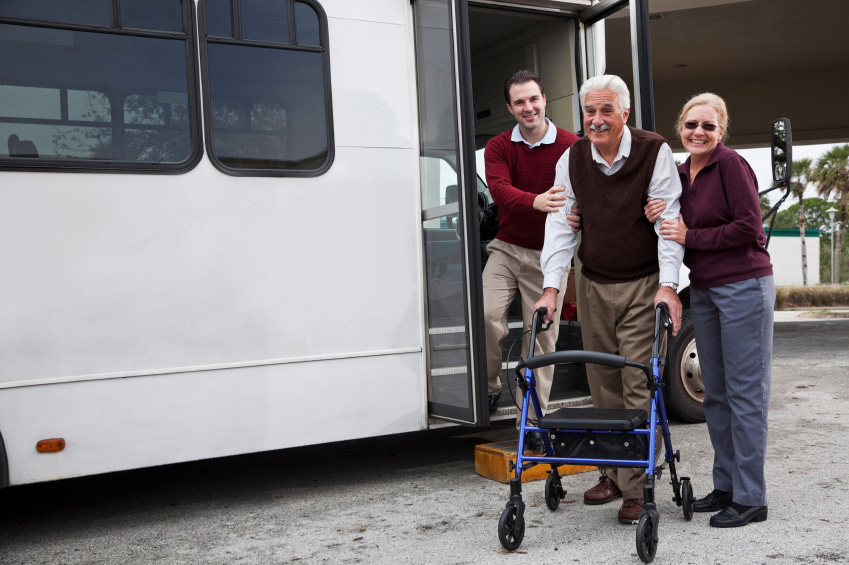Driving often represents independence and freedom, vital for maintaining quality of life. For seniors, staying behind the wheel can be closely tied to their sense of autonomy. However, age-related challenges can affect driving skills. Addressing these issues, and knowing when is the right time to do so, can help residents in senior retirement living stay mobile, but safe, even if it means giving up driving.
Roadblocks Ahead: Facing the Challenges of Driving as We Age
Stiff Joints and Muscles: Aging often leads to stiffer joints and weaker muscles, making driving more challenging. Seniors might find it difficult to turn their head, handle the steering wheel or brake effectively. Conditions like arthritis can worsen these difficulties, making driving uncomfortable and unsafe. It is important seniors consult with their doctor about potential solutions, such as adaptive equipment like hand controls.
Vision Problems: Vision changes are common with aging and can impact driving. Seniors might struggle with focusing on objects, shifting focus between near and far and seeing fine details. Peripheral vision, crucial for spotting cars and pedestrians, can diminish, and night driving becomes harder due to light sensitivity and glare. If light variations become an issue, consider limiting nighttime driving if vision difficulties persist.
Hearing Loss: Hearing loss, common in older adults, can affect driving safety. High-pitched sounds like horns and sirens may become harder to hear, increasing the risk of missing important warnings. Studies show those with hearing loss are often less aware of their surroundings. Regular hearing checkups are critical and can assist in finding appropriate hearing aids or solutions, to help maintain driving safety.
Medication and Health Issues: Health conditions such as arthritis, diabetes, heart disease and neurological disorders can impact driving. Regular medical checkups are crucial as some conditions may be managed to allow for safe driving, while others might require eliminating it. Medications also can affect alertness and reaction times. Any prescriptions should be regularly reviewed with healthcare providers to ensure adherence to cautionary guidelines and help understand how medications might negatively affect driving.
On the Move: How Senior Retirement Living Transportation Supports Independence
There may come a time, however, when it’s necessary to hand over the car keys. But despite giving up driving, adults in senior retirement living can maintain their independence through various transportation options provided by their community. Here’s how transportation services make a difference:
Enhanced Safety: Alternative transportation options help seniors avoid driving when it might be unsafe due to vision or reaction time issues. Senior shuttles, ride-sharing services and community transport programs cater to the needs of seniors, ensuring they can reach their destinations safely.
Convenience and Accessibility: Many senior retirement living communities offer transportation services that enhance convenience and accessibility while providing customized solutions. These include scheduled rides to essential places like medical appointments and social events. Tailored transportation improves quality of life by making daily activities safer and more enjoyable.
Social Opportunities: Providing reliable transportation to seniors contributes to social well-being by enabling them to attend gatherings, participate in activities and stay connected with loved ones. Access to social opportunities is crucial for mental and emotional health, complementing physical well-being.
Reduced Stress: For many seniors, driving, especially in heavy traffic or adverse conditions, can be stressful. Access to transportation services reduces this stress, allowing seniors to relax and enjoy their trips. This makes daily activities less daunting and more pleasant.
Embracing Solutions for Driving Alternatives
For those in senior retirement living, choosing to give up driving involves recognizing and addressing age-related challenges. By utilizing transportation services at a retirement community, seniors can maintain independence while ensuring their safety and that of others. Families and loved ones can play a role in guiding these choices, balancing the desire for independence with the need for safety.
For help with talking to a loved one about giving up driving and finding alternative transportation, download our free guide: Talking About Touchy Topics with an Aging Parent.
Country Meadows Retirement Communities has campuses in Pennsylvania and Frederick, Md. Senior living options include independent living, assisted living/personal care and restorative care services. Schedule a personalized visit today to see why U.S. News & World Report rated Country Meadows communities as Best Senior Living options in 2024.



